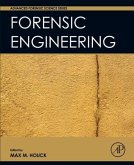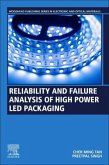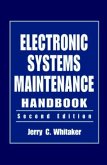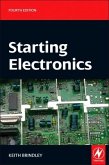Suitable as a reference work for reliability professionals or as a text for advanced undergraduate or graduate students, this book introduces the reader to the widely dispersed reliability literature of microelectronic and electronic-optional devices. Reliability and Failure of Electronic Materials and Devices integrates a treatment of chip and packaging level failures within the context of the atomic mechanisms and models used to explain degradation, and the statistical handling of lifetime data. Electromigration, dielectric radiation damage and the mechanical failure of contacts and solder joints are among the failure mechanisms considered. An underlying thread of the book concerns product defects--their relation to yield and reliability, the role they play in failure, and the way they are experimentally exposed.
The reader will gain a deeper physical understanding of failure mechanisms in electronic materials and devices, acquire skills in the mathematical handling of reliability data, and better appreciate future technology trends and the reliability issues they raise.
The reader will gain a deeper physical understanding of failure mechanisms in electronic materials and devices, acquire skills in the mathematical handling of reliability data, and better appreciate future technology trends and the reliability issues they raise.






